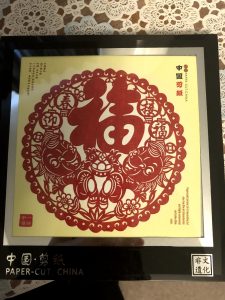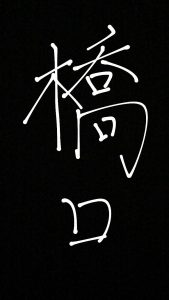你好!我姓何。我叫何眺盛。我叫Yoshi用英语。我的名字是桥口毅用日本语。我是日本人。我是千叶人。可是,我在加拿大现在。我是UBC的学生。我是二年级。
The reason why I take this course is that this could be a help in several ways.
First, I have a couple of Chinese friends from my first year at UBC and one from my high school! So, if I could communicate with their language even a little bit part of the conversation, that would be wholesome 🙂 Second, since China is located next to Japan, I have touched many Chinese cultures such as a movie (my favorite is 警察故事 by Jackie Chan) and many kinds of food for sure! Lastly, I went to Hongkong in 2018 and was so great journey. At the moment, I thought I wish I could speak Chinese! So, I think learning Chinese at UBC is a great start to understand their culture more deeply, which drives me to enroll in this course. Below are some random photos of when I went to Hongkong.


My goal in this course was that I would be able to express my emotion at least and arrange some dinner appointments by myself at most. At this mid-term point, I feel more confident with materials than at the beginning of the term. In fact, I already know how to invite someone to dinner or whatever, so it has been great so far. Since then, my goals are now to enhance my explanation skills just like we did in lesson 2.
UPDATE: So, at the mid-point, I was expecting myself to learn more explanation skills such as when, what, how, and who. Yes, in terms of these, I have learned a lot of materials that covered the way of telling who, when, and what. Now I can introduce my hobbies and even my friend’s hobby. Also, I can tell what I do at night and when to sleep and etc. The complexity of my sentence is still low and very limited, but surely the density of information of each sentence has increased, which is progress.
Also, pronunciation is a huge challenge for me. For now, I do not focus on tones that much because I spend much of my time remembering characters and pinyin. And it makes my tones inappropriate many times. So, I make the most use of Oral practice sessions as much as I can, and I sometimes record my pronunciation and listen to it to detect the incorrect part. For the transferable learning strategies between language learning and learning in general, I think making a connection between materials is very useful and helpful to increase my understandings. For example, one historical event cannot be understood by the event alone. We need to see what the context is and before and after the event. And understanding one historical event is highly likely to help you understand another historical event too. Likewise, when we cover two Chinese terms, 日本, and 学生,we then know how to pronounce 生日. So, making a connection between things is highly helpful and can be applied to any subject.
UPDATE: Yes, I surely have become to pay more attention to it than before and been trying to remember of tone number. However, the progress did not show up well as a number. To be specific, I took the Pinyin listening quiz that contains 25 questions. But the result was not good. I still have difficulties distinguishing the sound of “Zhu” and “Qu”, or “Zhi” and “Chi”. And there’s more of it. So, now I found my new challenge in learning Chinese.
As for the cultural aspects of China, I found their sense of seniority similar to Japan where I am from. Specifically, when they pair up a kinship with the same gender, they mention older first. For example, 哥哥弟弟,not 弟弟哥哥. This sense of seniority is assumingly unique and highly accepted only by Asian countries including Korea and Japan. For example, we write “兄弟” for referring to brothers. Also, in this case, the character “兄” which means older brother comes first. In another aspect, the seniority in some firms in Japan today is still sticking with its tradition, and promotion is sometimes based on age, not the progression or succession. So, It is very interesting to find this kind of similarity and trace it back to the history of Confucianism.

As you may have seen this before, this is a sign of 福 (fu). This is the one that my previous roommate gave me just a couple of months ago as a souvenir. Since then, I keep it and put it on my desk. 福, this sign, is a sign of fortune and presented when Lunar new year. The most interesting aspect of this sign is that when we put this on our front door or somewhere everyone can see, it is common to put this upside down! And at this time, it is called 倒福 (daofu). This is because the pronunciation 到 which means ‘arrive’ is the same as 倒. So, it is a pun on the words 倒 (make something upside down) and 到 (arrive). And they wish their happiness arrives at their home! This sign can often be seen and there are many kinds of it. As for the structure of this character, it has 礻as a radical, which means “show”. Also see https://chinese.stackexchange.com/questions/2400/why-%E7%A6%8F-is-often-used-upside-down
Understandings of radicals of characters are helpful when you encounter some characters you do not know. For example, we have the radical “女” for women. So we can assume 妈妈 or 妹妹 are something related to women. In fact, they mean mother and younger sister. Likewise, we have the radical “亻” for a person. Therefore, we can assume that the character 他 or 你 are referred to person. In fact, they mean he and you. With the understanding of radicals of character, we can break it down into several parts and guess the meaning of it. Although you cannot perfectly guess the meaning, this is helpful. And you can also remember those characters by remembering their radicals. This type of understanding is also able to be applied to Japanese which is my native language since Japanese has emerged from Chinese. For example, when we see a character “樹”, we can predict it is something related to wood. And indeed, this refers to wood. It is very helpful. As for differences between Japanese and Chinese in terms of the radicals or structure, I found Japanese uses more traditional ones than Chinese. For example, my Japanese last name uses “橋”, but in Chinese, we use “桥” for common use. 
Update (April 14th);
Finally, I have come to the end of the semester. Now I have something to update. First, I did communicate with my Chinese neighbor who lives in the same house and does not speak English. When I was doing my chores in the kitchen, she asked me in Chinese, “你做饭吗?” Since I was only doing dishwashing, I immediately responded to the question, “不做”. Although this was the simplest conversation ever, I did communicate with someone in Chinese outside Chinese class! Although it was very small talk, this reminds me of my first time I talked with someone in English in real life, which I finally felt the progress of my language learning (Remember, my native language is Japanese). And this time, the same thing. This kind of experience enhances your motivation for your language learning.





